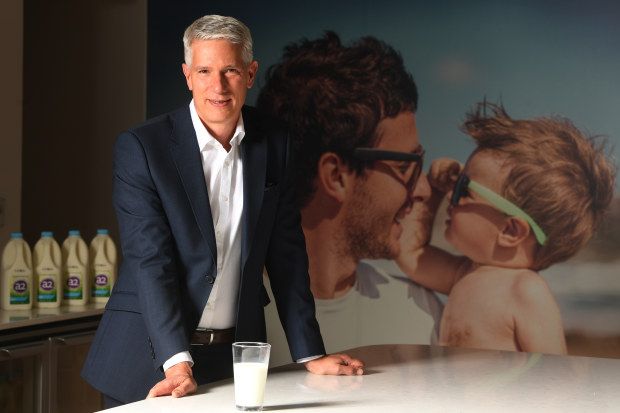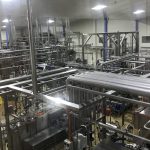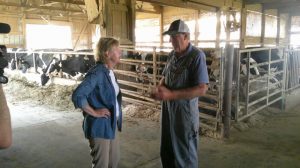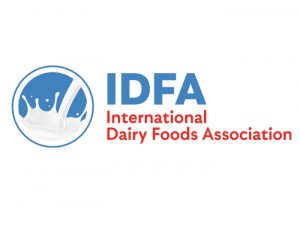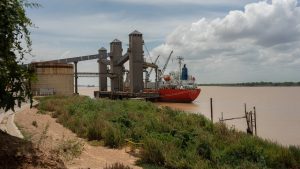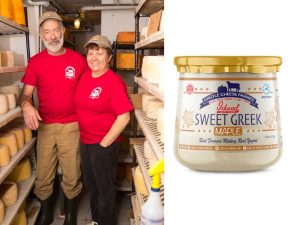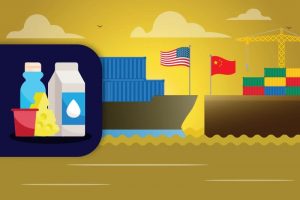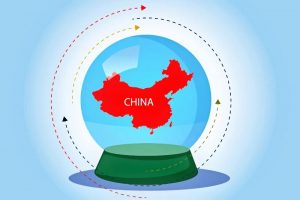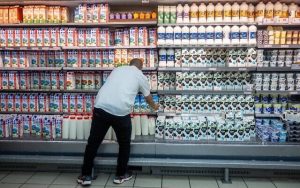
Mr Bortolussi wants a2 Milk to achieve $NZ2 billion ($1.9 billion) in annual sales over the medium term but will sacrifice profit margins to get there under his revised growth strategy. This will probably cut the key measure of profitability to the “teens”.
On Wednesday, the stock fell 11.9 per cent to $6.01 on the ASX – its lowest point in two weeks – after the CEO warned of uncertainties including China’s birth rate, a new national registration process and relations with Australia, as well as the pace of recovery in cross-border trade after COVID-19.-
“Maybe there’s some concerns around longer-term growth margins,” Mr Bortolussi told The Australian Financial Review after the company’s investor day. “I think what we put forward is a pretty bold ambition to grow sales from $NZ1.2 to $NZ2 billion over the next five or more years, and I struggle to understand why there would necessarily be an expectation of much higher margins.”
He said the company was investing for growth, which would lead to a “dramatic change” for the worse in its financial performance in the short term.
The consensus forecast for a2 Milk’s margin of earnings before interest, tax, depreciation and amortisation to sales in 2026 was about 24 per cent before Mr Bortolussi ’s comments – significantly higher than his mid- to high-teens margins projection.
Just 15 months ago, the stock was fetching nearly $20 a share.
Mr Bortolussi is looking at widening the product range in China, such as adding an ultra-premium formulation (grass fed and organic) or possibly a lower-priced range, as well as entering new markets with its existing fresh milk, formula, milk powder and UHT milk.
Tough road ahead
The CEO said a2 Milk had partnered with US multinational The Hershey Company, one of the largest chocolate makers in the world, in a new co-branded chocolate milk product. The Hershey’s a2 Milk will use 2 per cent reduced fat milk and will hit shop shelves in January 2022.
Mr Bortolussi has ambitions for a2 Milk to be the No. 1 English-label infant formula range in China, but he has a tough road ahead and must stabilise the English-label formula’s decline in the key market where volumes are falling and retail prices are under pressure.
Consumers are not prioritising international brands in the world’s largest baby formula market, which is under pressure because of a 20 per cent fall in the birth rate in 2020.
Mr Bortolussi said that while socio-demographic forces were driving down the birth rate incrementally, he does not “underestimate the impact the government can have through various policy settings supporting the birth rate going forward”.
We are focused on realising the full potential of our core China infant milk formula business.
— David Bortolussi, a2 Milk chief executive
Clime Investment Management portfolio manager Vincent Cook said one of the drivers of the share price weakness was lower than expected sales to Chinese-label retailers.
“The sales out of these stores continue to reflect double-digit growth and market share gains for a2,” Mr Cook said. “Sell-in to these stores has reduced to clear excess inventory and that should turn as inventory levels normalise.”
“A2 has a very strong balance sheet and the brand continues to perform well in consumer surveys, which positions the company well for a recovery in sales as international travel recovers.”
A2 Milk plans to take more control over its distribution in China and will increase investment in brand, digital marketing and e-commerce.
“We are focused on realising the full potential of our core China infant milk formula business and, despite current market headwinds, we have a significant opportunity to grow share in the market,” Mr Bortolussi said.
China growth will receive a boost from events such as “mamma classes” to drive brand awareness. A2 will further develop its distributor network to enable stronger coverage of lower-tier cities where local brands such as Feihe have a stronghold.
Lofty goal
Head of strategy Eleanor Khor said the focus was to deliver on its China formula business and building a second growth engine from dairy in China was key.
Across all non-formula products such as family milk items, a2 Milk is targeting $NZ200 million in sales in five years. Expansion into Vietnam, Indonesia, Malaysia and Singapore is also being considered, as well as entering new formula segments such as plant or goat.
The ASX’s biggest infant formula group has suffered significant falls in the past 16 months. There have been four successive profit downgrades and a major blowout in provisions for old stock in May.
A2 Milk was disrupted by COVID-19 as its English-label formula sales through daigou/reseller and e-commerce channels dried up. Nationalism is growing in China at the same time as the infant nutrition market growth is declining in volume as the nation grapples with a falling birthrate.
A2 Milk expects English-label sales to be down in the first half of 2022. Chinese-label formula sales in the first quarter were held back to reduce inventory levels, and therefore are significantly down in the first quarter.
Fresh milk volumes gained from extended lockdowns in Australia but US liquid milk volumes fell in the first quarter, where it is facing distribution cost pressures.
Mr Bortolussi has a lofty goal to reach $NZ2 billion in annual sales in five or more years from $NZ1.21 billion in fiscal 2020-21. He said earnings before interest, taxes, depreciation and amortisation margins – currently sitting at 11.1 per cent – would be “probably in the teens in the medium term” but could move to the “low to mid-20s” in the longer term.
One fund manager who does not own the stock noted that the margin-sapping major investment for growth planned by Mr Bortolussi mirrored what former CEO Jayne Hrdlicka was seeking to achieve before her departure two years ago.
“She was pushed out because of the margin decline and the founders then sold stock when the margins were temporarily restored,” he said. “I think this is unfair.”
A2 Milk needs to also improve the performance of its newly purchased Mataura Valley Milk facility. Nutritional demand from customers for formula base powder has been cut because of lower demand in China. This means the company will produce more commodities that will hit earnings and push out its profitability date to 2026.
MVM is transitioning from coal to full site electrification – a first for the industry in New Zealand. A2 Milk is also committed to the Australian 2025 national packaging targets, which means it will use 100 per cent reusable, recyclable or compostable packaging.
